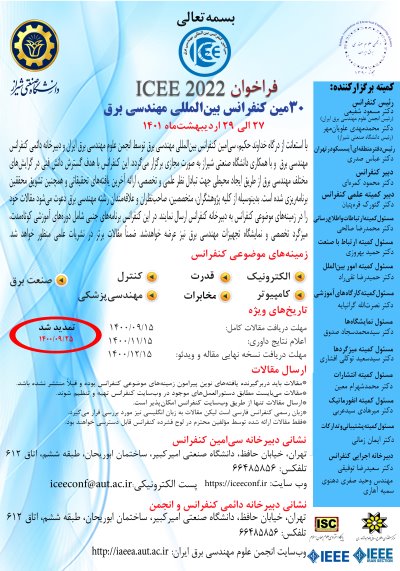0% Complete

نویسندگان :
کلمات کلیدی :
چکیده :
لیست مقالات بایگانی شده
Fatemeh Naeinian - Elnaz Balazadeh - Mehdi Tale Masouleh
Mona Mohades Mojtahedi - Arvin Mohammadi - Mehdi Tale Masouleh
پریسا مرادی هارونی - محمود رفائی بوکت
Hanieh Mohammadi - Bahram Tarvirdizadeh - Khalil Alipour - Mohammad Ghamari
Rozita Shafie - AliAkbar Tadaion - Zolfa Zeinalpour-Yazdi
Roqaie Moqadam - Nazila Loghmani - Meysam Siyahmansoori - Armin Allahverdy
ُSaman Faridsoltani - Mohaddeseh Sadeghi - Zahra Rahmani - Somayyeh Chamaani
Seyed Vahid Moravvej - Mohammad Javad Maleki Kahaki - Moein Salimi Sartakhti - Abdolreza Mirzaei
Abazar Arabameri - Sajad Haghzad Klidbary




